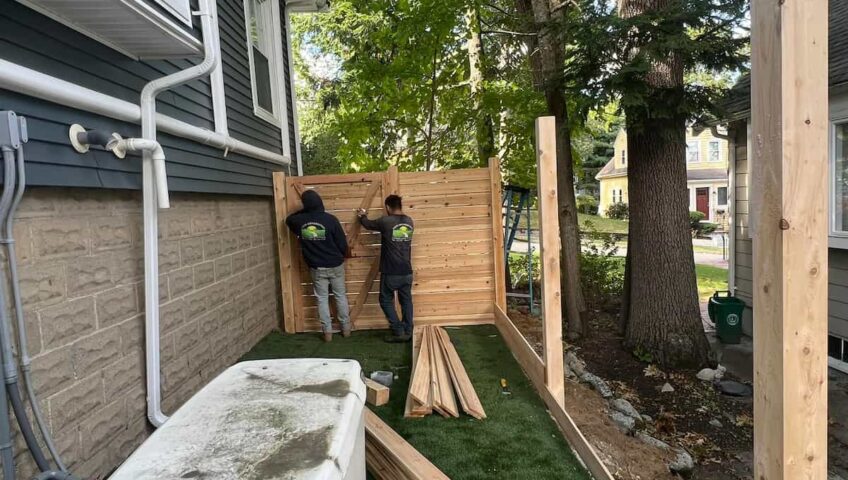Wooden fences are a popular choice for many homeowners who want to enhance the look and privacy of their homes. These fences are durable and can last for several years with proper maintenance. However, like all things, wooden fences eventually wear out, become damaged, or age to the point where they need to be replaced. So, when is it time to replace an old wooden fence?
Seven indications that it’s time to replace your wooden fence:
We will discuss seven indications that it’s time to replace your wooden fence. Whether you are looking for fence contractors in Massachusetts or anywhere else, these signs will help you make an informed decision about your wooden fence.
When Your Wooden Fence Is Old:
The average lifespan of a wooden fence is between 15 and 20 years, depending on the type of wood, the quality of the installation, and exposure to the elements. If your wooden fence is close to or exceeds this age range, it may be time to consider replacing it. An old wooden fence may have weakened over time and may no longer be as sturdy as it once was, making it more susceptible to damage and collapse.
When Your Fence Starts Rotting:
Rot is one of the most common issues associated with wooden fences, and it can occur when the wood is exposed to moisture for an extended period. If you notice rot on your fence, it’s time to replace it, as the rot will only spread and weaken the fence over time.
Your Fence Needs Repetitive and Costly Repairs:
If your wooden fence is frequently in need of repairs, it may be more cost-effective to replace it. Repetitive and costly repairs can add up over time and become more expensive than simply replacing the fence.
When There Is A Missing Block:
If a section of your wooden fence is missing, it can be an indication that the fence has reached the end of its lifespan and may need to be replaced. A missing block can also compromise the security of your property and make it more vulnerable to intruders.
When Termites have damaged your Fence:
Termites are a common problem for wooden fences, and they can quickly cause damage if not treated promptly. If you notice termite damage on your fence, it’s time to replace it, as termites can continue to cause damage even after they have been eliminated.
When Your Fence Is Lagging:
If your wooden fence appears to be leaning or sagging, it may be a sign that it is no longer secure. A lagging fence can be a safety hazard and may need to be replaced to ensure the safety of your property.
When Your Fence Has Massive Gaps:
Gaps in your wooden fence can occur over time due to weathering, warping, or settling. Large gaps in your fence can compromise its privacy and security, making it necessary to replace the fence.
Depending on the extent of the damage, you may be able to repair the existing fence. For instance, you can replace missing or damaged pickets, tighten loose screws, or replace broken hinges. If the damage is extensive, it may be more cost-effective to replace the entire section of the fence.
How Much Does It Cost To Replace A Fence?
The cost of replacing a wooden fence can vary greatly depending on several factors, such as the size of the fence, the type of wood used, and the complexity of the design. On average, it can cost between $1,000 and $7,000 to replace a wooden fence. It’s recommended to get quotes from New Generation Landscaping & Fence contractors in Massachusetts to compare prices and find the best deal.
A wooden fence is an important part of any property, but over time it may start to show signs of wear and tear. If you notice any of the seven indications that it’s time to replace. Replacing an old wooden fence can be a significant investment, but it is necessary to ensure the safety, security, and appearance of your property. If you are experiencing any of the issues listed above, it may be time to replace your wooden fence. Contact New Generation Landscaping & Fence contractor in Massachusetts to get a quote and start the process. With a new, well-constructed fence, you’ll have peace of mind knowing your property is protected and looking its best.
